Covid is the biggest threat facing our towns and high streets for generations.
However, while it poses enormous challenges, it also presents opportunities to adapt and hopefully prosper in the future – if our communities are able to grasp them.
That’s why, over the summer, I have been stepping up my work looking at regeneration in our local towns and villages – through my not for profit social enterprise, The Norfolk Way, and the recent RESTART Festival that we have held in collaboration with the New Anglia Local Enterprise Partnership, as well as numerous conversations with local councillors, district and county council officials, charities, businesses and local community groups.
I welcomed the invitation from the aboutDereham Partnership to meet again on Friday – to hear about all the great work that they have been doing, despite Covid, and to learn how I may be able to help them going forward.
Rest assured, I am committed to continuing this work in all of our Mid Norfolk towns, along with our villages, and look forward to reporting more soon.
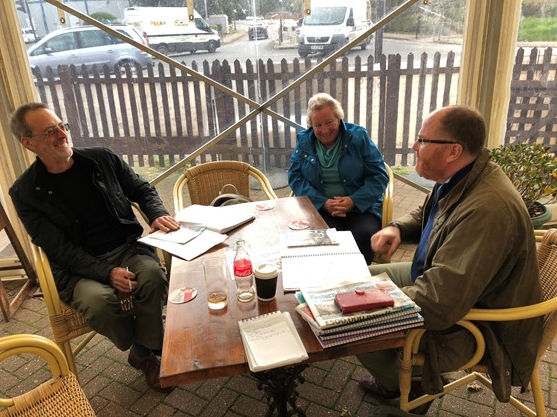
I have long campaigned for much needed improvements to Norfolk (and the East)’s infrastructure.
With the exciting growth of the nearby Norwich Research Park, A11 Tech Corridor and countless businesses (small, medium and large) in our area, I believe that the area between Dereham-Norwich-Wymondham, in particular, has the potential to become the “Norwich Research Triangle” – an area with a bright future based on lots of small start-up companies that creates exciting jobs and opportunities and spreads the prosperity further to the likes of Watton and other “left behind” towns which need a boost. Norfolk in general though has the chance to unlock its full economic potential.
That’s why I (along with my fellow parliamentary colleagues, local councils, community groups and the business community) have been so vocal about improving our region’s digital and transport networks. Good connectivity is key if we are to grasp this wonderful opportunity properly and ensure vibrant communities for ourselves and future generations to come.
We’ve already made some excellent achievements – the dualling of the A11 and the roll-out of superfast broadband to, now, just over 95% of Norfolk to name just two! However, a big part of this vision going forward is achieving full dualling of the A47, as well as securing the Norwich Western Link (to connect the NDR to the A47 west of Norwich).
While I am pleased that Highways England will finally be getting on with the £300 million A47 improvements between North Tuddenham and Easton that I helped to secure, and am delighted to see Norfolk County Council driving forward positive work on the campaign to deliver the Norwich Western Link, I share the profound local concerns that the delivery of these projects could lead to a surge in rat-running through many of the communities between the proposed Berry’s Lane/Wood Lane junction at Honingham and Wymondham/even further afield (including the likes of Honingham, East Tuddenham, Barnham Broom, Kimberley, Carleton Forehoe, Coston, Welborne, Brandon Parva, Runhall, Wicklewood and Wymondham).
Although these infrastructure improvements will represent massive progress for our area, it is vital that we ensure that a proper strategic plan is put in place to prevent these likely rat-running problems. We cannot sacrifice some of our most picturesque villages to ever more congestion, as well as greater levels of pollution and environmental damage, simply because we have not thought to look at the likely challenges ahead. It’s the quality of life, beautiful landscape and community spirit that makes Norfolk so special!
Back in October, at the request of a number of local Parish Councils, I attended a public meeting at St Peter’s Church in Kimberley to hear in greater detail their concerns about this potential increase in rat-running through our rural communities. It was decided that a local Taskforce would be created to co-ordinate the villages affected and work with local councillors, county and district officers, Highways England officials, the A47 Alliance and countryside groups to oversee the development of a proper Plan around the works – aimed at mitigating any likely rat-running and minimising the impact on local communities.
I am thrilled that, at a meeting earlier this year, the Taskforce received confirmation from Norfolk County Council that they were looking to expand their traffic survey work in Mid Norfolk – to better understand the possible traffic impacts both during and after the construction works for both projects. A map of proposed sites for this additional work was provided (and a link to it can be found at the bottom of the page).
Since that meeting earlier this year, Highways England have carried out the next public consultation for the North Tuddenham-Easton project, and are working through the findings. The local Taskforce encouraged local residents and communities to submit their views both to that consultation and directly to themselves as the Taskforce – then using the feedback obtained to make a formal submission to Highways England on how they would like to see the crucial new Wood Lane/Berry’s Lane junction designed.
In a meeting in the summer, Highways England gave the first indications of how their public consultation has gone – alluding to certain alterations that they intended to make to their original plans for the critical junction as a result of local feedback. I am pleased to report that we have since had confirmation that this has indeed been the case, and further consultation has now taken place to look at the specific issues of local and public access, along with public transport access – with Highways England now assessing that feedback too in order to assess their eventual final proposals.
I also welcomed a commitment by Highways England and Norfolk County Council Highways back in the summer to develop a proper plan for community engagement going forward – one that would allow them to ensure the views of local people form the basis of the mitigation measures that will be required, and add to the consultation work that will hopefully allow Highways England to get the plans for the Wood Lane/Berry’s Lane junction correct. Since the summer, I am delighted to share that this community engagement plan has been developed and subsequent meetings have taken place to explore how that process is going and what still needs to be done.
My team and I are supporting the Taskforce, Highways England and Norfolk County Council Highways as they now engage with local parishes to build a comprehensive picture of the traffic problems they are facing now and how they fear they may get worse in due course – and once the North Tuddendham-Easton stretch and the Norwich Western Link have been built. Once that picture has been formed, Norfolk County Council Highways will actively work with those parishes to assess which traffic mitigation methods may be required for the entire area to limit any potential negative impacts that these hugely beneficial infrastructure projects for our region may cause for this localised area.
More work lies ahead, but I am firmly commitment to supporting the local communities concerned on this issue.
If you have any points you would like to raise, please do send them to me directly and to the A47 Taskforce group at A47taskforce@outlook.com”
For further information, please see the links and details below.
Map of proposed sites for additional traffic survey work (produced by Norfolk County Council):

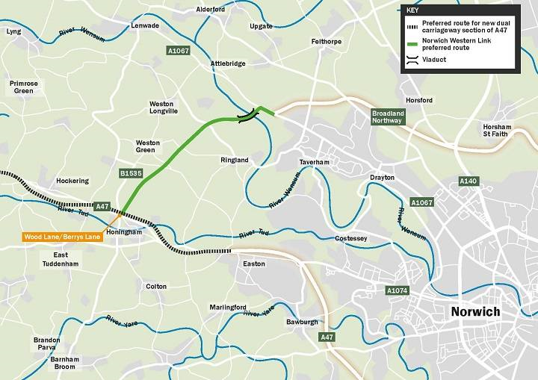
Improving connectivity in our part of the world was one of my first pledges when I began campaigning to become the MP for Mid Norfolk back in 2007 – and we have seen hugely positive progress, with more to come.
However, the dualling of the North Tuddenham-Easton A47 stretch (which is part of the £300 million commitment for the first phase of A47 dualling/improvement works, as well as the Norwich Western Link, must be delivered correctly – so as to avoid shifting the awful rat-running problems affecting communities to the north-west of Norwich to those to the west and south-west of the city.
That’s why I continue to actively work with the local A47 Taskforce that I helped create, local councillors and representatives and officials from both Highways England and Norfolk County Council’s Highways team to look at this issue.
Yesterday, we heard about the latest work being carried out by both Highways England and Norfolk County Council – particularly on how they are modelling existing traffic issues in the communities along and to the south of the North Tuddenham-Easton stretch, as well as working with Parish Councils and other stakeholders to assess their concerns going forward (especially in light of the proposed works for the dualling of this part of the A47).
I am pleased to report that a lot of promising work is going into that and I will be working with the Taskforce, Norfolk County Council and Highways England to reach out to those key parishes and ensure that their feedback is being gathered, collated and used to inform the mitigation methods that will be needed before, during and after these vital construction works for our region – in order to limit any potential negative impacts on the communities.
To learn more about my campaigning on this issue to date, please visit here
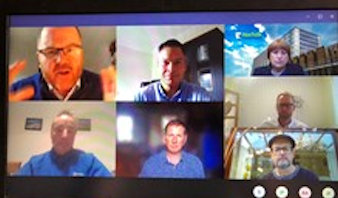
In our Conservative Manifesto and in our 2019 Election Campaign we gave a cast iron commitment to guarantee UK/EU Farm and Food Standards.
Ministers have since rightly accepted the case for an Agricultural Trade Commission. Why now refuse to enshrine our standards and Parliamentary scrutiny?
That’s why I broke my asthma isolation and returned to the House in person yesterday to speak in the Agricultural Bill debate and make the clear One Nation Conservative case for high food and farming standards and emphasise why we must #BackBritishFarming.
My full speech in the House last night can be seen here:
George Freeman urges the Government to enshrine its commitment to high food and animal welfare standards in law and use trade leverage and variable tariffs to incentivise high standards across the world.
George Freeman (Mid Norfolk) (Con)
I rise as a Member of Parliament for a very agricultural constituency, and as the product of a farming family—in fact, I think I still have a place on offer at Harper Adams if this career does not work out—as well as a former Minister for agritech, former trade envoy, and chair of the all-party parliamentary group on science and technology in agriculture.
This is a major moment, when we take back control of our farming policy from the EU after 40 years, and of our trading destiny and sovereignty. It is on a par with 1947—the last great reset of agricultural policy—or, indeed, the corn laws. I welcome the Agriculture Bill, and the work of DEFRA Ministers and officials in setting out a framework that supports commercial British farming—a great British industry that is leading in the world—and recognises that its important environmental work, which involves managing 70% of our land area, requires additional support. In broad terms, I strongly welcome the Bill.
I welcome even more strongly the Conservative party’s commitments, both in our manifesto and over the last 18 months from the Prime Minister, the Chancellor of the Duchy of Lancaster and my right hon. Friend the Member for Chipping Barnet (Theresa Villiers), who was the Secretary of State for Environment, Food and Rural Affairs at the time of the general election. I also welcome everyone who asked about our commitment to ensuring that we do not in any way undermine those standards. The Prime Minister put it beautifully when he said,
“we will not accept any diminution in food hygiene or animal welfare standards… We will not engage in some cut-throat race to the bottom…We are not leaving the EU to undermine European standards”.
He could not have been any clearer.
For that reason, I welcome the comments of my friend and neighbour, the Secretary of State for International Trade, my right hon. Friend the Member for South West Norfolk (Elizabeth Truss), her agreement to the Trade and Agriculture Commission and her personal commitment to ensuring that we do not negotiate away any standards. This really matters: to the great industry of British farming and agriculture; to consumers watching today, who want to know that we are looking after their interests; to voters, to whom the Conservative party gave those solemn commitments last year; and, dare I say it, to this party, which I have always seen as a party of the countryside, of stewardship, of rural community, and of high standards in animal welfare and environmental farming. That is what is on the table when we vote tonight. Either we are that as a party, or, in the countryside, we are very little.
This should be a hugely exciting opportunity for us to set out an ambition and lead globally, to use our trade leverage to promote fair trade around the world, to give our farmers a level playing field, to embrace variable tariffs, and to ensure that we support growers around the world to follow the standards that we need them to embrace. We have to double world food production on the same land area with half as much water within 20 years. That is a massive opportunity for our agritech industry. Imagine if we used our tariffs variably to say, “We won’t accept food that breaches our minimum standards. We will lower tariffs on decent food, but we’ll zero tariff food produced in ways we know we need as a global community.”
But there is a major problem: the Government, despite endorsing all of that vision, are today stripping out the proper establishment of the commission that the Secretary of State for International Trade herself agreed to, carefully negotiated in the House of Lords. They are asking us to rely on CRaG—a process agreed decades ago that was not designed for this purpose, and which will mean that this House will not have a say on trade deals—and asking us to rely on the WTO, which specifically prohibits animal welfare and food production standards as a legal basis for any trade restrictions. We are saying that we defend farming and the standards that we support, but denying this House the means to guarantee them.
Bill Wiggin (North Herefordshire) (Con)
What else has my right hon. Friend done about how he feels about this matter? Has he written to anyone about it?
George Freeman
I am grateful to my distinguished hon. Friend. The truth is that we can talk about standards, but if we expose UK farmers and growers to imports coming in at a lower price because they are not fulfilling those standards, they will not be able to compete and we will be throwing away the opportunity of having a great industry that leads the world. Lord Curry, who tabled the amendment in the other place, said:
“Under the current terms, the commission will set up for six months and will submit an advisory report to the Secretary of State, which will be presented to Parliament. It will then be disbanded and disappear into the mist. There is no obligation on the Secretary of State to take its recommendations seriously”—[Official Report, House of Lords, 28 July 2020; Vol. 805, c. 145.]
If we, as a Government and as a party, are seriously committed to honouring our commitments, I would like us to go further. Why do we not commit to enshrining our standards properly in some form of schedule—the standards that we will not undermine or allow any Minister of any Government to negotiate away? Why do we not give this House the power to ensure that it can scrutinise properly? Why do we not embrace a trade policy that is fit for this 50-year opportunity, which puts the British flag at the top of the mast for standards, and go out into the world and say, “We’ll use our trade leverage and variable tariffs to support the good, benign practices that the world urgently needs”?
I have long campaigned for reform to our planning system, which I have long believed is broken.
For too long our planning system has become not about high quality long term local ‘planning’ - but about the imposition from London of house-building targets on localities without appropriate infrastructure.
I deeply believe we need to give local councils and communities much more local control and greater freedoms and incentives to plan and build better: reducing avoidable and wasteful commuting by car, better public transport links, more recreational facilities for children, using more local design codes, and supporting the vibrant villages and thriving towns that are the backbone of Norfolk.
After the Labour Government of 2005-2010 imposed House Targets on each area, I supported the Conservative Government’s approach in 2010 of “localism”: allowing local councils to make their own plans and keep more of the proceeds of growth, as long as they didn’t reject all growth and complied with the 5 year land supply rule to build at the rate their area needed.
But the Crash of 2008, the crisis in the public finances and council budgets and the ability of developers to “land bank” meant that in reality councils had very little power and the 5 year land supply allowed developers like Gladman to ride roughshod over local councils. As we have seen here in mid Norfolk.
So I support the Government’s decision to Reform the Planning system.
The latest white paper has some good reforms in it.
BUT the formula used to allocate housing numbers is bizarre, completely undeliverable and would have hugely damaging impacts on our area because.
1. It disproportionately focuses new housing in rural greenfield not brownfield sites
2. Rural areas like Mjd Norfolk get massive housebuilding rises while cities like Norwich get less
3. The reform centralises the Infrastructure Levy and allows for infrastructure to be built AFTER development with huge added pressures on local faculties
4. In Norfolk, the Greater Norwich area would have to build 40,000 extra houses: that’s the equivalent of building a town the size of Diss. Every year. For 20 years.
5. The rate of building is 50% higher than the highest rate of building in the last 20 years - under Gordon Brown.
This formula is wholly unrealistic.
So whilst there is much to be applauded in the White Paper, I am working with our local councils and councillors, fellow MPs and Ministers to get this formula changed.
To hear my views in full, please watch the video below.
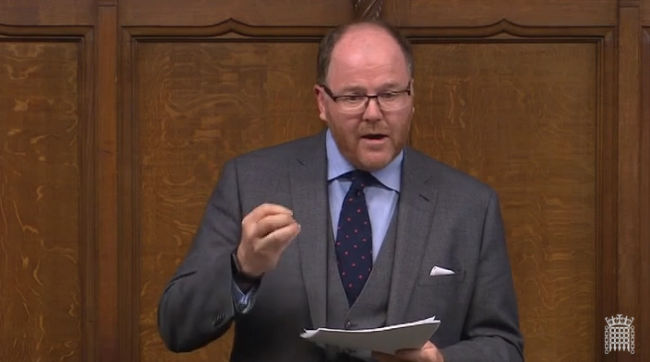
I am supporting the Lords Amendments to enshrine Food Safety and Farm Animal Welfare standards in the Agriculture Bill today for a number of reasons:
1. We promised in our Manifesto and the election campaign that we would enshrine and protect existing UK Farm and Food standards.
2. It is not a fair trade to require UK farmers to grow food to minimum standards that we don’t require of imports. The hardline “Free Trade” lobby says that is ‘protectionist’ as if that is somehow ‘wrong’. I’m opposed to using Government money to subsidise or “protect” failing businesses – but that is very different from ensuring fair trade for UK farmers.
3. Whilst we have adopted all our existing EU rules into UK law, they can currently be negotiated away by Ministers without a vote in Parliament.
4. The WTO Rules, on which we will be relying after Jan 1st, specifically prohibit animal welfare as a reason for trade restrictions. The WTO only allows risks to human health and safety as a reason for restricting trade. Scientific opinion on the data on that is not overwhelming. So to enforce UK standards we need our own legal protections.
5. Without legal statutory protection of our basic standards, our undertaking to protect UK standards will be worthless: cheaper food produced to standards we don’t accept will flood in and UK farmers will go out of business.
6. Fair Trade: I have long campaigned for us to use our trade to help promote good growth around the world: we need to help developing countries use less pesticide, plastic, carbon and other damaging environmental and unacceptable labour methods (like child labour). I want us to use our new freedom to shape our own Trade and Agriculture policies outside the EU to use our trade leverage to promote good practice.
We should be using our trade leverage to develop our soft power and influence through a series of “banded tariffs” rewarding the production methods we want to see. For example on food like coffee & fruit from Africa:
- We should remove the appalling 40% tariff the EU places on food imports
- Set out basic safety and welfare standards we insist food complies with
- Offer [10]% tariffs on food that complies with basic standards and reserve Tariff Free trade as a reward for production to the higher standards we want to promote
(This is linked to what I have long campaigned for: the UK as a global exporter of the modern methods of clean green smart production we want to encourage - and which we can support with our innovation.)
7. If we get this right we can show that we are delivering on our promise to make Brexit a moment for the UK to support our high standards and fly the flag for improved standards around the world.
To hear my views in full, please watch the video below.
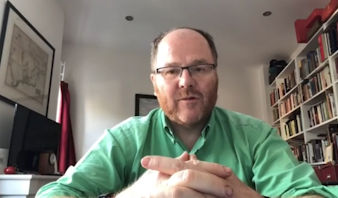
This continues to be a very difficult time for us all. I know many within our community are shielding and all of us are anxious about the threat of the virus and what the future holds. As your representative, my first duty is always to ensure that the most vulnerable within our area are protected. We must continue to be vigilant and follow the rules set out by the Government to contain the virus.
In the long-term, however, we have to learn to live with this virus. Here in Mid Norfolk we have seen this year both how damaging to our local economy, charities and to the health of many sick and elderly patients who have been denied treatment this Covid lockdown has been. We have also seen how much better faster and more effectively our LOCAL Public Health and Councils can react than the Whitehall bureaucracy to tackle local outbreaks.
I believe this autumn and winter we need a clearer Strategy based on the principles of:
- protecting the most medically vulnerable
- permitting as much economic activity as possible
- targeting Testing and Tracing at the most essential Vulnerable and Key Workers
- allowing LOCAL authorities to manage local outbreaks as far as possible before national measures
We can’t continue the cycle of lockdown, lifting restrictions and then locking down again indefinitely. As a former entrepreneur, I know all local businesses need as much certainty as possible. They have to know if they can stay open without the risk of being closed down again at a moment’s notice.
That’s why we need proper parliamentary scrutiny of new laws that affect all our lives. It is why I have put my name to the Brady Amendment. Brexit was about taking back control and making Parliament sovereign. It’s crucial that we start to show that promise was real. Laws restricting all our basic liberties need to be scrutinised properly in the House of Commons. That’s what MPs are for and that’s what the Brady Amendment is trying to achieve.
Many have also criticised the Government’s response. I absolutely understand the frustration and anger at the restrictions that have been imposed on our daily lives. However, in a time of national emergency, I believe we do need to work together. Armchair critics benefit no one. In January this was all new. Now we have learned. Norfolk did really well to avoid a crisis in our Care Homes. Everyone is doing their best. This has to be a team effort in order to pull through and get things back to normal.
This autumn, however, I believe we do need to find a new approach. We need as much social and economic freedom as we can safely have while looking after the most vulnerable. We cannot continue to lock students down in their rooms, close off the economy and risk mass unemployment for a generation. Together with other MPs, I am calling on the Government to put in place a response that protects the vulnerable but is also proportionate with the risks.
Rest assured, I will always continue to fight for your concerns and raise all issues with the relevant Ministers and Departments. I also want to praise our NHS staff, emergency workers and police for all they are doing to help protect us.
To see the latest and most up to date Covid guidelines, please visit the Government website here: https://www.gov.uk/coronavirus
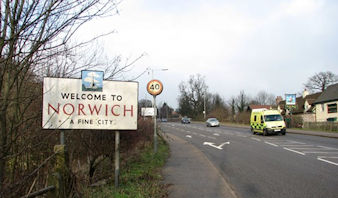
Great news! The Government has confirmed Norwich received £32 million from the Transforming Cities Fund.
The funds will be used for a variety of transport infrastructure improvements in and around the city – positive steps as we look to ensure the region has the transport network it needs to thrive in the 21st century.
There remains much more to be done, but please be assured that I (along with parliamentary colleagues, councillors, officials, businesses and resident groups) continue to actively lobby hard for the transport improvements our part of the world needs if it is to unlock its true potential.
(To see the EDP article on the announcement, please click here)
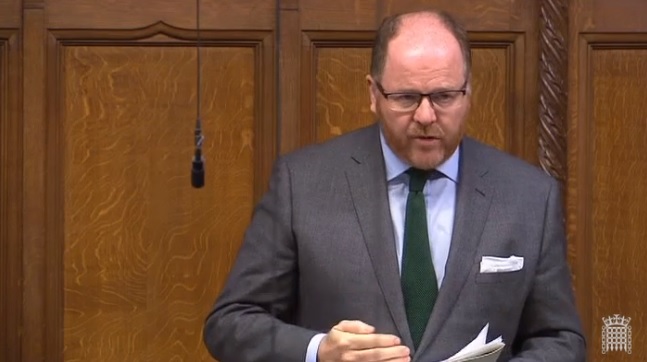
While I have long argued that our planning system is broken (and am therefore very pleased indeed to see the Government’s recognition that it needs significant reform), I am concerned with the reforms proposed in the Government’s ‘Changes to the Current Planning System’.
The public rightly expect planning to be just that: the co-ordination of the location, layout, design, mix – and associated physical and public service infrastructure – of housing and commercial development.
There is widespread public anger about the lack of real local planning in recent years and the move to a system in which local council control and discretion is reduced, infrastructure funding is cut, and large scale out-of-town volume housebuilders are able to make billions from lazily dumping large scale commuter housing on the outskirts of villages and towns with wholly insufficient infrastructure.
Whilst the proposed reforms contain *some* good measures – especially on design codes and trees – the disproportionate concentration of massive numbers of houses in rural areas, on greenfield farmland, AND the removal of the local infrastructure levy, is a recipe for infrastructure chaos.
These reforms, I believe, serve to strengthen the hand of those aggressive development companies and fail to address the fundamental issues that the current planning system perpetuates, and which have been/continue to be the basis on which I, and so many others, have called for proper reform.
That’s why I have taken the time to submit my views to the consultation – and why I continue to lobby Government hard on this issue.
To read my full submission to the consultation, please do click here.
